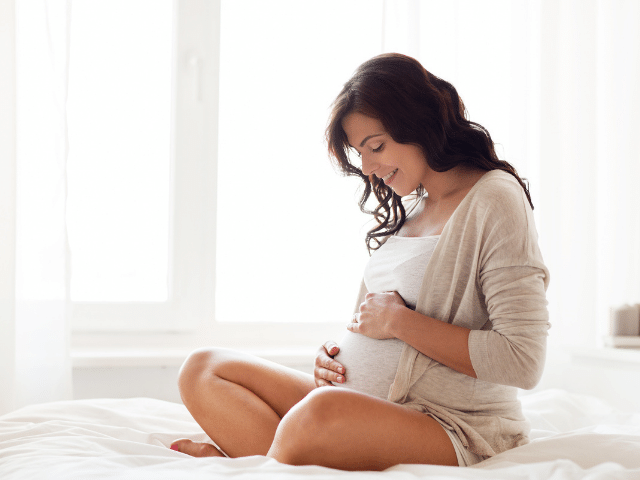Unquestionably, pregnancy alters a woman’s physique. When a woman is expecting a child, her body must go through a number of changes in order for both she and the unborn child to live the next nine months (or so) safely. Her organs will need to move around to make room for the baby, which will cause a number of additional minor changes that aren’t immediately noticeable. The fetus experiences remarkable changes as it develops within the womb and may be more aware of what’s happening outside than you think.
Here are nine pregnancy-related surprises and some hypotheses as to why the body changes so significantly during that time.
The Nesting Desire
A common symptom of pregnancy is the nesting impulse, a strong urge to prepare and decorate your home in anticipation of the baby.
In your ninth month of pregnancy, you probably wouldn’t have envisioned scrubbing cabinets or washing walls, but as your due date approaches, you could find yourself doing just that! You’ll have fewer things to do following the delivery if you want to get your house ready. But, please, don’t overdo it.
Concerns Regarding Concentration
Many pregnant women have fatigue and foggy thinking in the first trimester due to morning sickness and fatigue. Even well-rested pregnant women, though, run the risk of forgetting things and having trouble concentrating.
Hormonal fluctuations and pregnancy-related thoughts also play a part. It’s possible to feel as though the baby and the upcoming delivery are more important than anything else, especially jobs, bills, and doctor visits. You may recall appointments and dates by making lists.
Swings In Mood
Pregnancy and premenstrual syndrome are similar in numerous ways. Your hormones fluctuate, you may feel moody, and your breasts swell and become sensitive. If you suffer from PMS, your mood fluctuations during pregnancy may be more extreme. They can suddenly turn your mood from one of happiness to one of sobbing.
Mood changes are fairly typical throughout pregnancy. As the third trimester draws to a close, they typically occur more often
Depression is common in pregnant women. For more than two weeks, seek medical advice if you experience symptoms like trouble sleeping, dietary changes, or mood swings.
Size of Bra
One of the earliest indications of pregnancy is an increase in breast size. Estrogen and progesterone levels must be high because breast development takes place during the first trimester. The growth you noticed in the first trimester may not have been the end of your breasts’ development since they could continue to grow throughout your pregnancy!
Your ribcage may also have an impact on the size of your bra. Because you can breathe more easily while pregnant, your lung capacity grows, which could cause your chest to grow in size. While you are pregnant, you might need to buy new bras several times.
Skin Variations
Do your friends notice that you have a pregnant glow? This is one of the various symptoms that may be brought on by changes in hormone levels and skin stretching. Additionally, due to hyperpigmentation, the skin around their anal region, nipples, and external genitalia may darken. This occurs because the body produces extra pigment as a result of pregnancy hormones.
The darker skin could look like splotches of color because the additional pigment may not be uniform. Chloasma cannot be prevented, but its signs can be lessened by wearing sunscreen and limiting time in the sun.
Pregnancy causes the sebaceous glands in the skin to produce more oil, which makes acne more prevalent. Additionally, any moles or freckles you had before becoming pregnant may grow and darken. After giving birth, the majority of these skin changes should go away.
As a consequence of moisture and perspiration, heat rash also affects many pregnant women.
Larger blood volumes in pregnant women improve blood flow to the kidneys and other organs, especially the uterus. The increased volume boosts oil gland output and increases blood flow to the arteries.
Chloasma, sometimes known as the “mask of pregnancy,” is a condition marked by brownish or yellowish blotches that some women get on their faces. And several people will see the linea nigra, a dark line that runs down the lower abdomen’s midline (or linea negra).
Nails And Hair
Many women experience changes in their hair’s texture and development during pregnancy. Because of hormones, you might experience faster hair growth and less strand loss. However, these hair alterations are frequently temporary. In the months following childbirth or after they cease nursing, many women experience hair loss.
On their faces, bellies, or areas around their nipples, some women discover that they are prone to hair growth in these undesirable areas. Hair might become drier or oilier as a result of increased viscosity. Women may notice color changes in their hair.
Nails can change during pregnancy in the same way that hair can. Additional hormones could quicken their growth and make them stronger. However, for some women, pregnancy increases their susceptibility to having broken or split nails. Compared to hair changes, nail changes are less obvious.
Size Of Shoes
You still have your shoes even if you can’t fit into any of your pre-pregnancy clothing, right? Perhaps, but perhaps not. Many pregnant women’s bodies produce more fluid than usual, which causes their feet to swell and necessitates a larger shoe size. It may be more comfortable to wear slip-on shoes in a bigger size, especially during the summer.
The Motion Of The Joints
According to popular belief, the relaxin hormone, which the body produces during pregnancy, aids in preparing the pubic region and cervix for delivery. Relaxin causes the ligaments in your body to loosen, which decreases your stability and raises your risk of injury. Your knees, lower back, and pelvis joints, in particular, are prone to strain or overstretching.
Hemorrhoids, Constipation, And Varicose Veins
Varicose veins are characterized by blood accumulating in enlarged veins brought on by pregnancy hormones. These veins are most frequently found in the legs and genitalia. Pregnancy frequently causes varicose veins to disappear. To aid in their prevention
- Don’t spend a lot of time sitting or standing still.
- Put on comfortable clothes and support hose.
- As you sit, elevate your feet.
During pregnancy, hemorrhoids or varicose veins in the rectum are also typical. Your uterus is pressing on your pelvis, and your blood volume has grown. Consequently, your rectum’s veins might expand and group together like grapes. Especially during or right after a bowel movement, hemorrhoids can be uncomfortable. They can also bleed, itch, or sting (BM).
Nausea and vomiting are common in certain females. Passing gas is typical, and some women develop diarrhea prior to or during birth. While pushing, you can become unable to control your bladder or bowels.
A birth plan can be used to let your medical team know your preferences for these and other aspects of labor and delivery.
You might expect a lot of unexpected things when you’re pregnant. The feeling you’ll get upon holding your newborn, though, will be the sweetest of all.
References:
- A woman’s age affects her fertility. (n.d.).
yourfertility.org.au/for-women/age/ - About teen pregnancy. (2017).
cdc.gov/teenpregnancy/about/index.htm - Baby badges for Japan commuters. (2006).
news.bbc.co.uk/2/hi/asia-pacific/5255672.stm
Births: Method of delivery. (2017).
cdc.gov/nchs/fastats/delivery.htm













